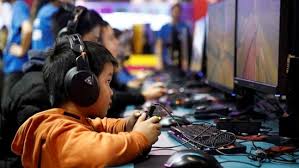A new study has delved into a fascinating area of research: the impact of gaming on cognitive skills in students. As video games become an increasingly prominent part of our daily lives, understanding their effects on young minds is more important than ever. This study aims to shed light on how gaming influences cognitive development, offering valuable insights for educators, parents, and policymakers.
Key Findings of the Study
The study, conducted by a team of cognitive scientists and educational researchers, explored various aspects of cognitive development in students who engage with video games regularly. Here’s a summary of the key findings:
- Enhanced Problem-Solving Skills
One of the most notable findings is that gaming can significantly improve problem-solving abilities. Students who regularly played puzzle and strategy games demonstrated enhanced skills in analytical thinking and problem resolution. These games require players to think critically, plan ahead, and adapt to new challenges, which translates into improved problem-solving skills in real-life scenarios. - Improved Spatial Awareness
Another important discovery is that gaming can boost spatial awareness. Games that involve navigating complex environments, such as 3D platformers and simulations, help students develop a better understanding of spatial relationships and object manipulation. This enhanced spatial awareness is beneficial in subjects like mathematics, engineering, and science. - Increased Attention and Concentration
The study found that gaming can also improve attention and concentration. Fast-paced action games, in particular, require players to focus on multiple elements simultaneously and react quickly. This enhanced ability to maintain attention and manage distractions can positively impact academic performance and daily tasks. - Boosted Memory Retention
Games that involve memorizing patterns, sequences, or information can help enhance memory retention. The study observed that students who engaged with memory-based games showed improvements in both short-term and long-term memory. This suggests that gaming can be a valuable tool for reinforcing learning and information retention.
Implications for Education
The findings from this study have several important implications for education and learning:
- Incorporating Games into Learning
Educators might consider integrating educational games into their curricula to harness the cognitive benefits identified in the study. Games designed to teach subjects like math, science, or history could make learning more engaging and effective. - Balancing Gaming and Studies
While the study highlights the positive cognitive effects of gaming, it’s important to balance gaming with other educational activities. Ensuring that gaming does not replace essential study time or physical activity is crucial for maintaining overall well-being. - Designing Educational Games
The study underscores the potential for designing games specifically tailored to enhance cognitive skills. Developers and educators can collaborate to create games that target specific areas of cognitive development, such as critical thinking or memory improvement. - Encouraging Positive Gaming Habits
Parents and educators can use the study’s findings to encourage positive gaming habits. Setting limits on screen time, selecting educational or skill-enhancing games, and promoting a balanced approach to gaming can help maximize the benefits while minimizing potential downsides.
What’s Next?
The study opens up new avenues for further research. Future studies could explore how different types of games affect various aspects of cognitive development, or investigate the long-term impact of gaming on academic and professional success. Additionally, research could examine how gaming influences social and emotional skills in students.
Conclusion
The new study offers promising insights into the positive impact of gaming on cognitive skills in students. By enhancing problem-solving abilities, spatial awareness, attention, and memory retention, gaming has the potential to support cognitive development in meaningful ways. As the educational community continues to explore these findings, there is an opportunity to leverage gaming as a tool for learning and growth, while ensuring a balanced approach to its integration into students’ lives.




